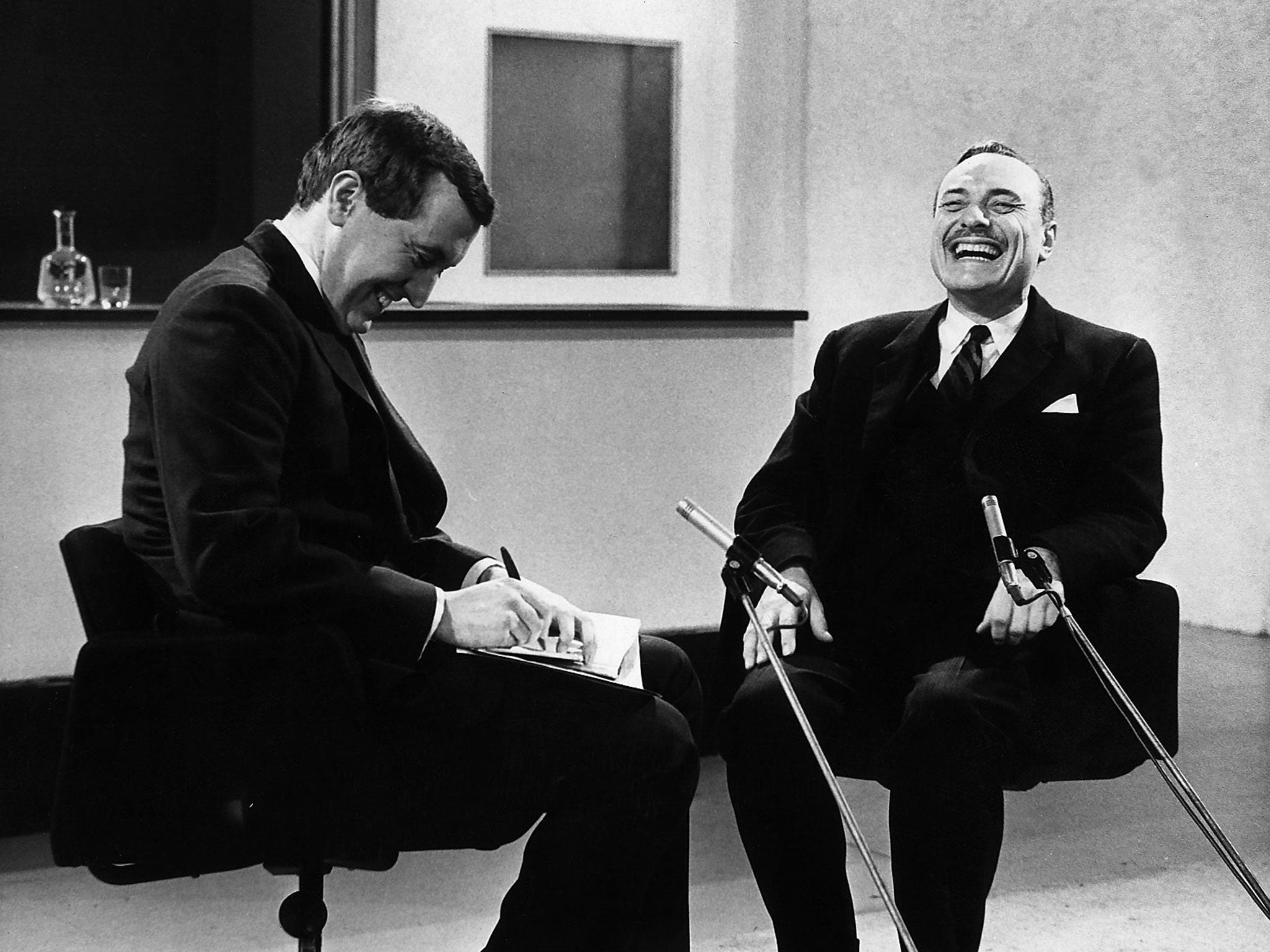Frost: That Was The Life That Was by Neil Hegarty, book review
A biography of David Frost shows him to be a private but loved and admired figure

Early on in their careers, Peter Cook famously saved David Frost from drowning. Equally famously, he was fond of telling people it was the one sincere regret of his life. As Frost surfaced from the sea, he spluttered one word: “Super!”
The incident says much about Frost. Firstly, he was in the sea despite the fact that he couldn't swim – he'd presumably come to the conclusion that things would nonetheless probably turn out all right. It was a calculation he made continually throughout his life, often against mounting odds. And the positive spin he sought to impart on a near-death experience was typical of the Tiggerish approach to life that helped make him one of the most important figures in the history of television.
The giant wave of energy, intelligence and ambition that was David Frost swept through Britain and America in the 1960s, transforming television in line with the egalitarianism, classless irreverence and sense of fun and style that were convulsively emerging in a rapidly changing society. Then as he matured, and his career progressed, he made the serious, long-form interview his own, his roster of subjects across the decades including just about every significant world figure worth interviewing.
But if he cut a brash swathe with his helicopters, limos and clouds of cigar smoke – at one point he was running shows on both sides of the Atlantic at the same time, commuting twice weekly – the inner Frost was anything but.
His father was a Methodist minister, and Frost held dear throughout his life the principles he had absorbed from such an upbringing.
And Neil Hegarty's very good biography takes great pains to elucidate Frosts's warmth, kindness and charm, but also his private nature. John Cleese – one of many whose careers he kick-started and nurtured – says: “He didn't seem to have any interior life, which is why he kept himself so extraordinarily busy.” In fact I suspect he had as much of an interior life as the next man, but kept it to himself. Greg Dyke, for one, agrees with Cleese, telling Hegarty: “I sometimes think he was rather a lonely man.”
But again, as Hegarty points out, that's probably not quite right: Frost needed few friends, as those closest to him were aware: “He was living life in a manner that pleased him and that made him content; there was no need for further examination.”
The inner Frost can be glimpsed in one early anecdote. During his gap year before Cambridge, Frost taught at a secondary modern, and later recalled that persuading two of his pupils to do their O-levels and enter the sixth form of their local grammar school was “one of the most rewarding experiences of my life”.
The book – which also serves as a tribute to one of Frost's three sons, Miles, who died at 31 while jogging earlier this year – gains much from the input of his family and friends, even if their contributions impart an inevitable whiff of hagiography.
For it's clear that he was loved and admired by almost everyone who knew him, in whatever capacity (though Cook, outshone by Frost, could never forgive him).
For all his essential remoteness David Frost increased the sum of human happiness – and I suspect that would mean more to him than any of his many and considerable professional achievements.
Subscribe to Independent Premium to bookmark this article
Want to bookmark your favourite articles and stories to read or reference later? Start your Independent Premium subscription today.

Join our commenting forum
Join thought-provoking conversations, follow other Independent readers and see their replies